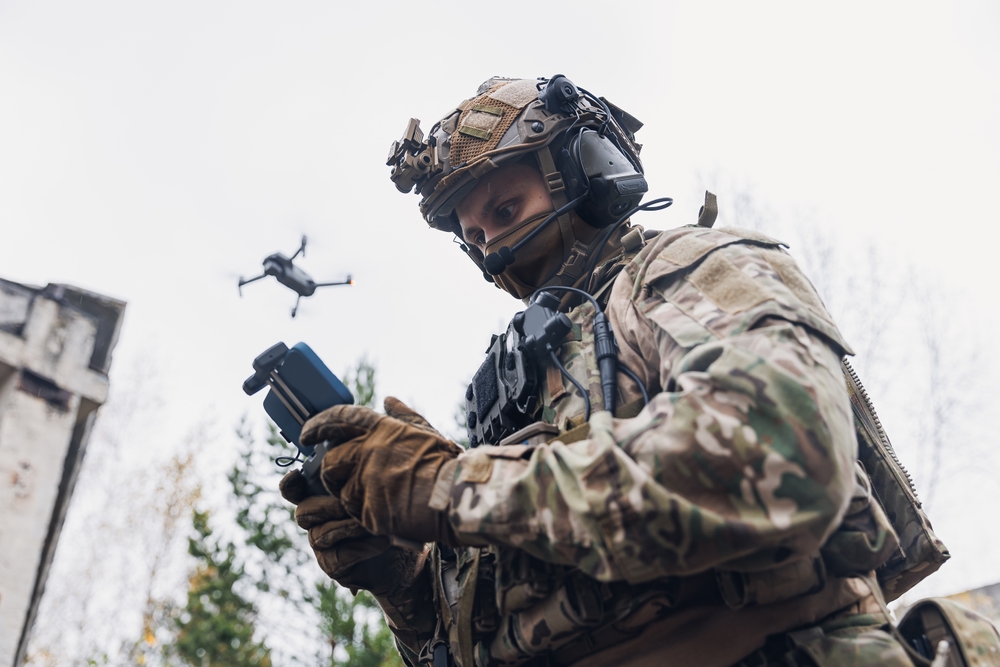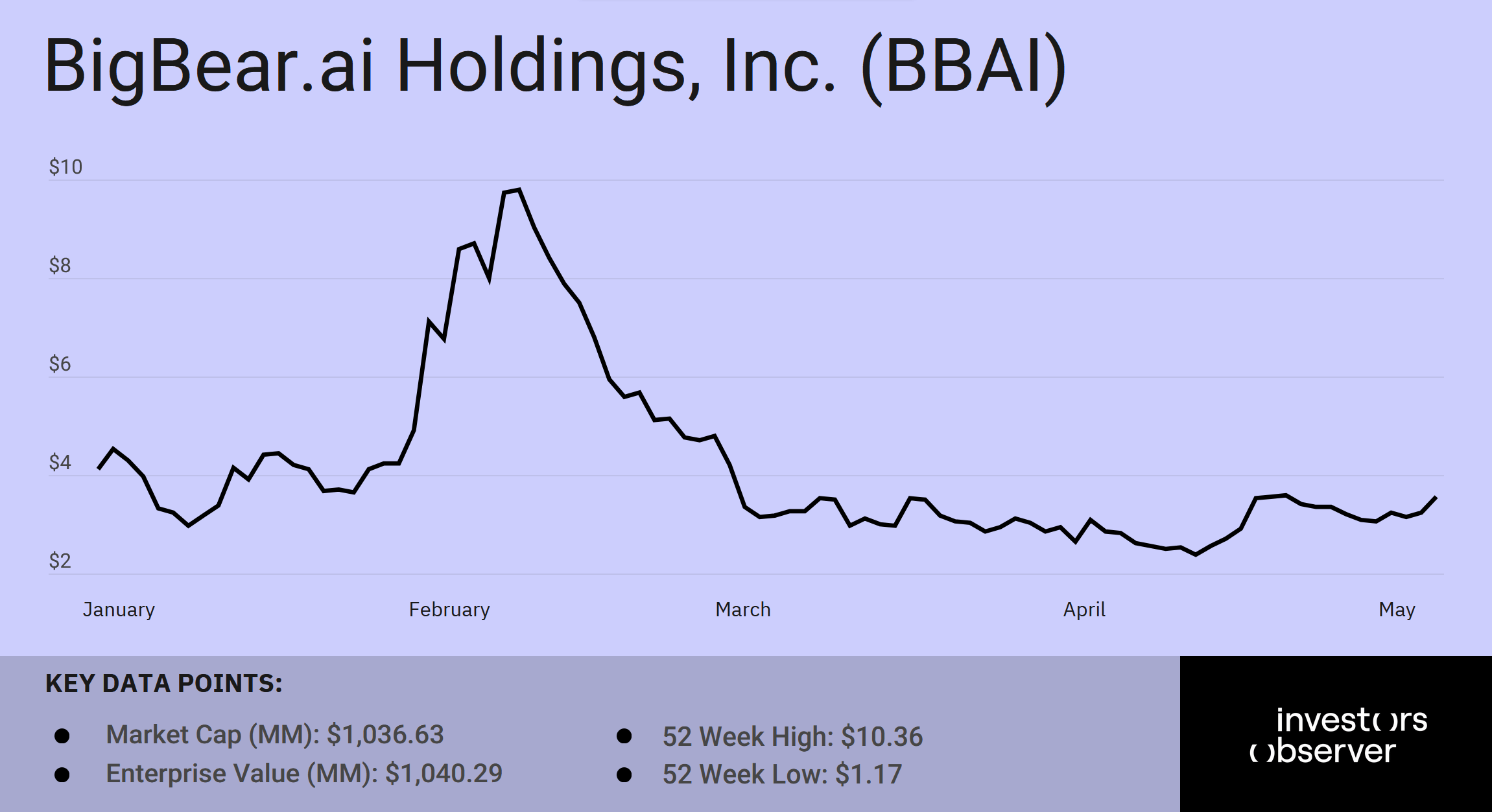
BigBear.ai (BBAI) is joining a new U.S. Army initiative to bring artificial intelligence into battlefield operations, as part of a broader Pentagon effort to modernize military decision-making and drone coordination.
The company will collaborate with Hardy Dynamics on a project aimed at building secure, reliable communication across unmanned aerial systems (UAS), or drones.
It’s part of Project Lynchpin, a Department of Defense program focused on integrating AI and machine learning into future warfighting capabilities.
BigBear.ai, which develops AI-powered tools for defense and national security, will act as a subcontractor. Hardy Dynamics is leading the effort through a Direct-to-Phase II SBIR contract awarded by the Army.
Hardy will use BigBear.ai’s ConductorOS platform to support the mission. ConductorOS helps synchronize data, AI models, and sensors, enabling autonomous systems to communicate and coordinate more effectively.
“In supporting the U.S. Army’s Project Lynchpin, BigBear.ai is advancing the frontiers of AI-powered operations across the defense ecosystem,” CEO Kevin McAleenan said in a statement.
“We are excited to work with Hardy Dynamics to deliver mission-focused, scalable solutions to meet the evolving needs of our warfighters, where they operate.”
The Army outlined the goals of Project Lynchpin in an April letter from Secretary Dan Driscoll and Gen. Randy George. The note describes how the Army plans to become “leaner and more lethal” by updating how it fights, trains, and buys equipment — with AI playing a central role.
“Command and control nodes will integrate Artificial Intelligence to accelerate decision-making and preserve the initiative,” the letter states.
Defense contracts drive growth
The Army partnership adds to a growing list of wins for BigBear.ai in the defense and national security space. In March, the company landed a $13.2 million, 3.5-year contract to modernize the DoD’s Defense Force Management platform.
BigBear.ai has also been picking up more work with the Department of Homeland Security and digital identity systems. That helped push first-quarter revenue up 5% to $34.8 million, from $33.1 million a year ago.
Gross margin ticked up slightly to 21.3%, from 21.1% in Q1 2024. Meanwhile, the company posted a net loss of $62 million, an improvement over the $127.8 million loss it reported in the first quarter of 2024.
Looking ahead, BigBear.ai reaffirmed its 2025 revenue guidance of between $160 million and $180 million.
BigBear.ai shares rose 9.5% on Tuesday after the news broke. The stock is still down 20% year-to-date, but investors are watching closely as the company continues to secure long-term government deals.

Your email address will not be published. Required fields are markedmarked